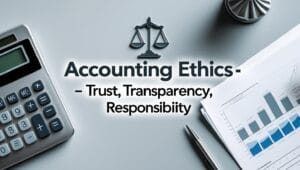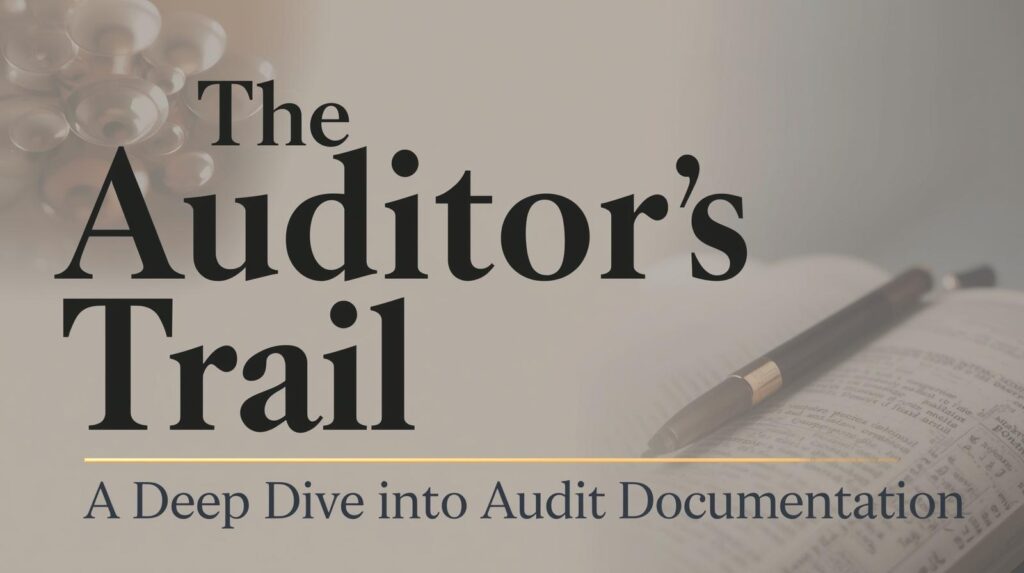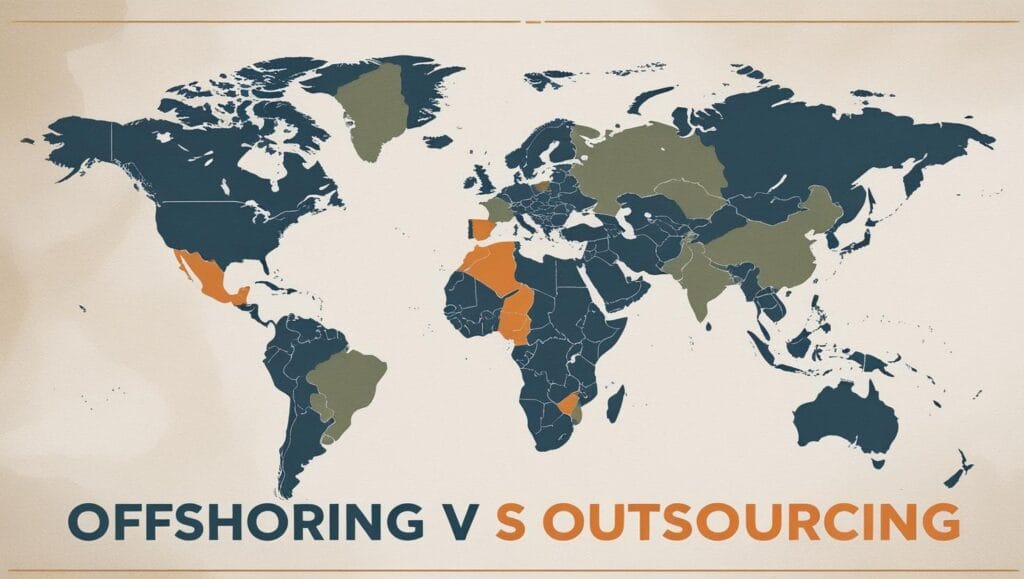What is Accounting Ethics?
Why Integrity in Numbers is the Bedrock of Modern Finance
🏛️Defining Accounting Ethics
Accounting ethics is the specialized branch of professional ethics that dictates the moral principles and standards of conduct for accountants. It is a comprehensive framework of values, norms, and rules designed to ensure that accountants act with the highest level of integrity, objectivity, and professionalism. This ethical code governs every aspect of their work, from recording daily financial transactions to preparing and auditing complex financial statements.
At its core, accounting ethics is about maintaining public trust. Stakeholders—including investors, creditors, employees, and the government—rely on the financial information produced by accountants to make critical economic decisions. If this information is not trustworthy, the entire financial system is at risk. Therefore, accounting ethics is not merely a set of guidelines; it is the fundamental pillar that upholds the credibility and reliability of financial markets worldwide. It ensures that financial reporting is a true and fair representation of an entity’s performance and position, free from bias, manipulation, or deception.
The Core Principles of Accounting Ethics
Professional accounting bodies worldwide, such as the American Institute of Certified Public Accountants (AICPA) and the International Federation of Accountants (IFAC), have established codes of conduct based on several fundamental principles:
- Integrity: To be straightforward and honest in all professional and business relationships. Integrity implies fair dealing and truthfulness.
- Objectivity: To not allow bias, conflict of interest, or undue influence of others to override professional or business judgments.
- Professional Competence and Due Care: To maintain professional knowledge and skill at the level required to ensure that a client or employer receives competent professional service based on current developments in practice, legislation, and techniques.
- Confidentiality: To respect the confidentiality of information acquired as a result of professional and business relationships and, therefore, not disclose any such information to third parties without proper and specific authority, unless there is a legal or professional right or duty to disclose.
- Professional Behavior: To comply with relevant laws and regulations and avoid any action that discredits the profession.
⚖️Why is Ethics Vitally Important in Accounting?
The importance of ethics in accounting cannot be overstated. It is the very essence of the profession’s value to society. Without a strong ethical foundation, the work of accountants would be meaningless, and the consequences for businesses and the economy would be catastrophic.
1. Upholding Public Trust and Confidence
The primary function of accounting is to provide reliable financial information. Investors use this information to decide where to invest their capital, creditors use it to assess creditworthiness, and management uses it for strategic planning. If the public loses trust in the integrity of financial reporting, capital markets will cease to function efficiently. Ethical behavior ensures that financial statements are credible, fostering the trust that is essential for a healthy economy.
2. Ensuring the Integrity of Financial Markets
Ethical accounting practices are a cornerstone of market integrity. When accountants adhere to ethical standards, they help prevent fraud and misrepresentation, leading to a more stable and transparent financial environment. This stability encourages investment and economic growth. Unethical practices, conversely, can lead to market volatility, financial crises, and widespread economic damage.
3. Guiding Professional Judgment
Accounting is not always black and white. Accountants often need to exercise professional judgment in areas like asset valuation, revenue recognition, and depreciation. An ethical framework guides them in making these judgments, ensuring that their decisions are objective, consistent, and in the best interest of the stakeholders, rather than being driven by personal gain or pressure from management.
4. Preventing Fraud and Corruption
A strong ethical code is the first line of defense against financial fraud and corruption. By committing to integrity and objectivity, accountants can identify and report suspicious activities. This gatekeeping role is crucial for protecting a company’s assets and ensuring its long-term viability.
📉Case Study: The Enron Scandal – A Catastrophic Ethical Failure
Perhaps no event in modern history illustrates the importance of accounting ethics more powerfully than the Enron scandal of 2001. This case serves as a stark reminder of the devastating consequences that unfold when ethical principles are abandoned.
The Anatomy of a Deception
Enron, an American energy-trading company, was once hailed as a model of innovation and success. However, its meteoric rise was built on a foundation of systemic and deliberate accounting fraud. The company’s executives, with the complicity of their auditors at Arthur Andersen, used a complex web of **Special Purpose Entities (SPEs)** to hide billions of dollars in debt and inflate earnings.
The Ethical Breaches:
- Complete Lack of Integrity: Enron’s leadership and its accountants knowingly falsified financial statements to mislead investors and maintain a high stock price.
- Abdication of Objectivity: Arthur Andersen, the auditing firm, compromised its independence and objectivity. The lucrative consulting fees it received from Enron created a massive conflict of interest, leading them to approve fraudulent financial reports.
- Disregard for Professional Behavior: Both internal and external accountants violated their duty to comply with laws and professional standards. They actively engaged in actions that discredited the entire accounting profession.
The Aftermath:
When the truth was revealed, the consequences were swift and brutal. Enron’s stock price collapsed, wiping out over $70 billion in market value. The company filed for bankruptcy, leading to thousands of employees losing their jobs and life savings. The scandal’s fallout also led to the dissolution of Arthur Andersen, one of the world’s largest accounting firms, and shattered public confidence in corporate governance and financial reporting.
The Enron scandal was a direct result of a profound ethical collapse. It highlighted the critical need for stricter regulations and a renewed commitment to ethical conduct in the accounting profession. In response, the U.S. Congress passed the Sarbanes-Oxley Act of 2002 (SOX), a landmark law designed to improve corporate governance, enhance the accuracy of financial reporting, and hold executives and auditors more accountable.
💡Ethical Dilemmas in Practice: A Modern Example
Ethical challenges for accountants are not always as monumental as the Enron scandal. They often appear in more subtle, everyday situations.
The Scenario: Pressure on Revenue Recognition
Imagine an accountant at a software company that is trying to meet its quarterly earnings target. The Vice President of Sales closes a large deal on the last day of the quarter, but the contract has a clause that allows the customer to cancel within 30 days. The VP pressures the accountant to recognize the full revenue from the sale in the current quarter to ensure the company meets its target and everyone gets their bonus.
The Ethical Conflict:
According to accounting standards (like ASC 606), revenue should only be recognized when control of the goods or services is transferred to the customer. The cancellation clause creates uncertainty about whether the sale is final. Recognizing the revenue would violate the principles of objectivity (the accountant is being pressured) and professional competence and due care (knowingly applying an accounting principle incorrectly).
The Ethical Path:
The ethical accountant must resist the pressure and insist on following the proper accounting standards. This may mean delaying revenue recognition until the cancellation period has passed. While this decision might be unpopular in the short term, it upholds the integrity of the financial statements and protects the long-term interests of the company and its stakeholders.
🚀Conclusion: Ethics as a Strategic Asset
In conclusion, accounting ethics is far more than a set of rules; it is the conscience of the financial world. It ensures that numbers tell a true story, that businesses are held accountable, and that the public can have confidence in the economic systems that shape our lives. The lessons from scandals like Enron are clear: a culture of ethics is not a luxury but a necessity. For the accounting profession, upholding these principles is not only a duty but also a strategic asset that builds trust, mitigates risk, and ultimately sustains the integrity of the global economy.


